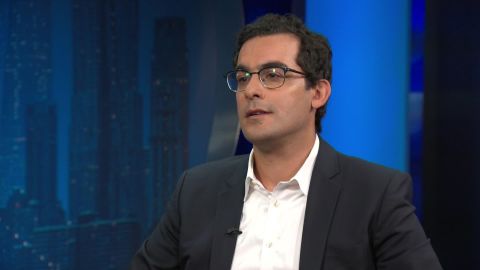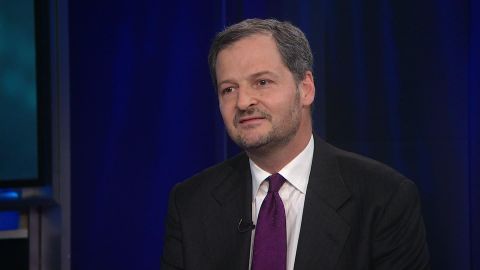Read Transcript EXPAND
SERGIO JARAMILLO, FORMER LEAD PEACE NEGOTIATOR IN COLOMBIA: Well, it was a very big deal. I say it’s a miracle actually that such a large insurgency, 10,000-plus, and well-funded insurgency would lay down arms in a textbook fashion with U.N. verification and security council on top. I mean, if you look at what’s going on in the rest of the world, comparable insurgencies, the Taliban in Afghanistan, our American friends have spent almost $2 trillion and they are now negotiating their exits, it seems. So, you know, it was a very improbable (ph) thing, it was very, very hard to do. And if you look at what’s happening with the FARC itself and how it transitioned into politics, that bit of the peace process is working very well. They have transformed into a political force.
CHRISTIANE AMANPOUR: So, what’s not working? Because we hear that, I don’t know, 3,000 or more have taken up arms again, that there isn’t the rural investment and economic replacement, if you like, to sustain them.
JARAMILLO: Yes. So, the deal was not just about the FARC’s disarmament because no guerrilla negotiates just simply its own disarmament, it’s about more. And what it was about was putting an end to the historic conflict in Colombia by addressing the factors or causes that kept the violence going. So, that’s why we agreed to do a rural development program, that’s why we agreed to address differently the problem of drugs and similarly, to expand political participation. So, all of those things that don’t have to do directly with the FARC transformation are doing much less well, and the secretary general of the U.N. is right to call it a critical juncture now.
AMANPOUR: This is what I asked the new president less than a year ago when he was in New York, Ivan Duque. I asked him, “Are you going to basically, you know, dismantle this peace process?” This is what he said to me.
(BEGIN VIDEO CLIP)
IVAN DUQUE MARQUEZ, COLOMBIAN PRESIDENT: I have said it publicly, we want to fulfill the word of the Colombian State for people who are making the transition. To legality, we will fulfill the word. We will help them succeed. But people who want to remain in criminal activities will be brought to justice.
(END VIDEO CLIP)
AMANPOUR: So, unpick that statement because it sounds perfectly normal, we want it to succeed, we want to honor the Colombian State, as you just mentioned, but people will be brought to justice if necessary. Which part of that do you not agree with?
JARAMILLO: Well, first of all, the government tends to say, whenever it’s addressing an international community, that it will implement the agreements. But when you actually look at what’s going on, that’s not what’s happening. Just take any — take the first point, which was the issue of rural development.
AMANPOUR: Yes.
JARAMILLO: We agreed to set up a fund with 3 million hectares to distribute to small workers, campesinos, and none of it has happened.
About This Episode EXPAND
Christiane Amanpour speaks with Keith Bush on exoneration after 33 years in prison alongside Nina Morrison. Sergio Jaramillo joins the program to discuss peace negotiations in Colombia. Alicia Menendez speaks with Yousef Bashir about his new memoir, “The Words of My Father.
LEARN MORE


